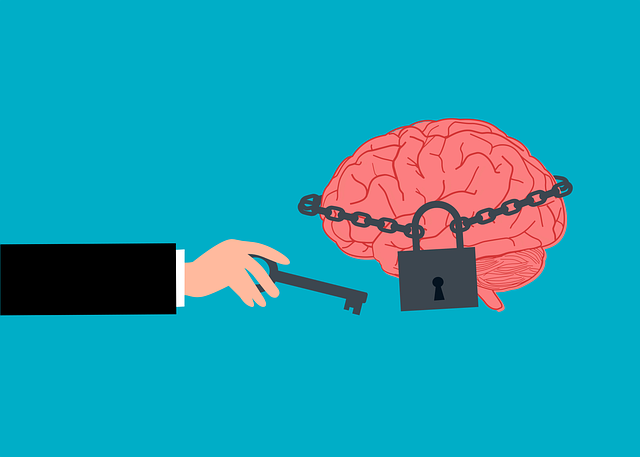Mental health advocacy initiatives, such as Lafayette Anxiety Therapy, are transforming societies by educating communities on mental health, providing resources like therapy services, and pushing for better access to trauma support. Through strategic partnerships and innovative approaches, these initiatives create inclusive, compassionate environments that empower individuals to prioritize their well-being. By dispelig myths, fostering open dialogue, and integrating evidence-based practices, they overcome barriers and ensure better mental health outcomes for all.
Mental health advocacy initiatives play a pivotal role in shaping supportive communities and enhancing access to care. This article explores the power of such efforts, using Lafayette Anxiety Therapy as a compelling case study showcasing successful community engagement strategies. We delve into key strategies for effective advocacy, highlighting methods to overcome barriers and expand mental health resources. By understanding these approaches, we can collectively drive positive change and improve overall well-being.
- Understanding Mental Health Advocacy: Its Role and Impact
- Lafayette Anxiety Therapy: A Case Study in Community Engagement
- Strategies for Effective Mental Health Advocacy Initiatives
- Overcoming Barriers: Expanding Access to Mental Health Resources
Understanding Mental Health Advocacy: Its Role and Impact

Mental health advocacy initiatives play a pivotal role in shaping public perception and fostering supportive environments. These efforts are dedicated to raising awareness about various mental health conditions, breaking down associated stigma, and promoting early intervention. Through advocacy, communities gain access to essential resources such as Lafayette Anxiety Therapy services, ensuring individuals receive the necessary support for their well-being.
Advocacy initiatives also drive the development of comprehensive Mental Health Education Programs that equip people with knowledge about recognizing signs of distress and providing effective self-care routine strategies for better mental health. Moreover, they advocate for improved access to Trauma Support Services, crucial for those who have experienced traumatic events. By combining education, therapy, and support, these initiatives create a more inclusive and compassionate society where individuals are empowered to prioritize their mental health.
Lafayette Anxiety Therapy: A Case Study in Community Engagement

Lafayette Anxiety Therapy stands as a shining example of successful community engagement in mental health advocacy. This initiative focuses on providing accessible and affordable therapy services to residents of Lafayette, addressing the growing need for mental healthcare in the area. Through partnerships with local schools, community centers, and businesses, they’ve created a network that fosters open conversations about anxiety and other mental health issues.
The program incorporates innovative strategies such as self-awareness exercises tailored to manage stress and anxiety, alongside traditional therapy models. By engaging the community through educational workshops, support groups, and accessible online resources, Lafayette Anxiety Therapy is not only improving individual lives but also fostering a culture of Mental Health Awareness. This holistic approach includes Risk Management Planning for Mental Health Professionals, ensuring that practitioners in the field are equipped to handle their own well-being while assisting others.
Strategies for Effective Mental Health Advocacy Initiatives

Mental health advocacy initiatives require a multi-faceted approach to effectively raise awareness and promote support for individuals struggling with conditions like Lafayette Anxiety Therapy. Successful campaigns should include education programs that dispel myths surrounding mental illness, emphasizing understanding and empathy. Community engagement is vital; hosting events, workshops, and dialogues can foster open conversations about mental health, encouraging early intervention and reducing stigma.
Integrating practices such as Depression Prevention strategies, Positive Thinking techniques, and Mindfulness Meditation into advocacy efforts can empower individuals to take charge of their well-being. These tools not only support personal resilience but also reinforce the importance of self-care within advocacy messaging. By combining education, community involvement, and evidence-based practices, mental health advocacy initiatives can create a more supportive environment, leading to improved access to care and enhanced overall well-being.
Overcoming Barriers: Expanding Access to Mental Health Resources

Mental health advocacy plays a pivotal role in breaking down barriers and expanding access to essential resources. One significant challenge lies in reaching individuals who may feel isolated or hesitant to seek help due to stigma, fear, or lack of awareness. Initiatives such as public awareness campaigns focused on destigmatizing mental health issues are crucial steps forward. By normalizing conversations around anxiety, depression, and other common concerns, communities like Lafayette Anxiety Therapy can foster an environment where people feel empowered to take the first step towards healing.
Empathy building strategies within these campaigns further enhance accessibility by showcasing relatable stories and experiences. This not only encourages individuals to recognize their own struggles but also motivates them to reach out for support. Through combined efforts in public awareness development and tailored interventions, mental health advocacy initiatives strive to ensure that no one faces their battles alone, ultimately improving the overall well-being of communities.
Mental health advocacy initiatives, such as the successful model of Lafayette Anxiety Therapy, demonstrate the power of community engagement in improving access to mental health resources. By employing strategies that overcome barriers and empower individuals, these initiatives can lead to significant positive impacts on society. Understanding the role of advocacy and implementing effective approaches are key steps towards fostering a more supportive environment for mental well-being. This includes recognizing and addressing unique challenges, ensuring diversity and inclusion in advocacy efforts, and leveraging digital tools to enhance reach and accessibility. Ultimately, through sustained commitment and collaborative action, we can create a more inclusive and resilient community that prioritizes mental health for all.












